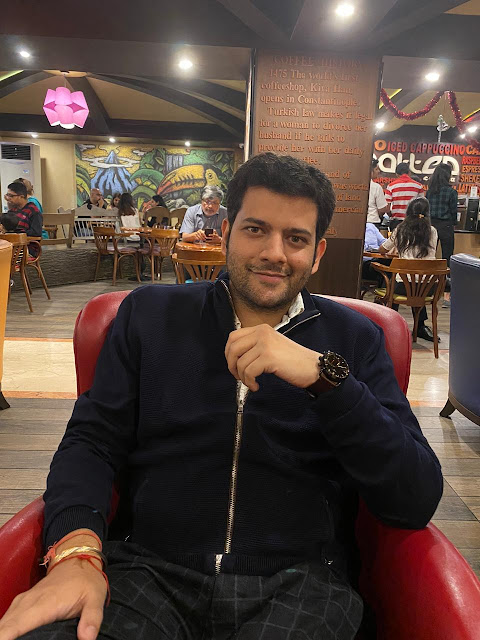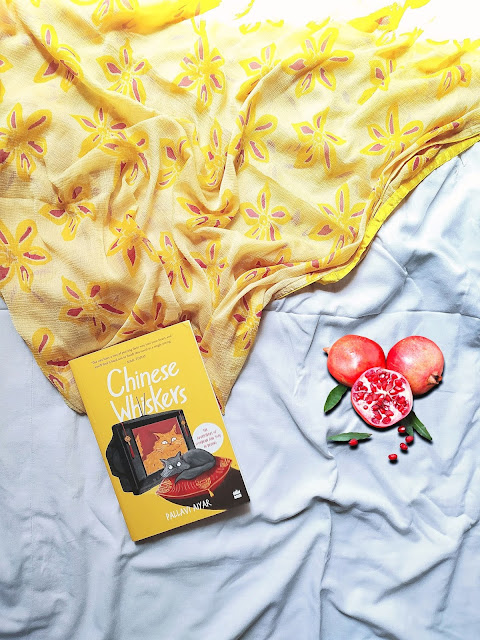The End is a Transformational Memoir by Karanvir Gupta that gives you the author’s perspective of the pandemic, the consequences and thoughts prevalent in that period of static chaos; comprising his own experiences of the Covid-19 pandemic, interesting stats and insights, meaningful poems and his journey of processing his thoughts, the author has done a fabulous job at putting out his honest opinions, beliefs, philosophy and the resultant perception—his way of interpreting the pandemic and pre-pandemic world; the book provides you with a vast set of subjects ranging from moral science to
GNH (Gross National Happiness) to work from home to existential crisis to coexistence to human irony and with that it gives you enough time and space to contemplate, discuss and debate what is written on the page; Karanvir’s transformation is your chance to pause, reflect, reset and restart, which will let us humans decide whether it is the beginning of The End or a new beginning with an end to our wrong ways.
Ever since SpaceX has launched its first batch of internet-providing
Starlink satellites, the astronomers are increasingly concerned as the company continued to blast more small mass-produced satellites into the low earth orbit to grow a satellite internet constellation of over 1700 satellites. The astronomers’ community across the globe soon sensed the threat to the night sky started reporting the problems with this project following many mishaps. The headlines could be seen, such as “
The night sky is increasingly dystopian” and “
Starlink satellites might soon be involved in 90% of close encounters between two spacecraft in low Earth orbit”. Having internet everywhere is cool but are we willing to trade the sky against the internet despite that it could eventually lead to satellites crashing into each other, increasing space debris and light pollution for astronomers? It is depressing that it’s just the beginning and more individuals and companies are joining the competition with the mindset that
we have to move away from the earth anyway so we should give up on the earth and move to mars. (This paragraph was purely my own attempt to explain the following point. Read Disclaimer.)
Before I completely digress from the subject at hand, let me come to the point—the State of Apathy, one of the many stark remarks on humans the author has made in the book. Now, you may ask, what is the connection between pandemic and being oblivious or a threat to astronomy, for that matter? Most of us would never reflect upon our lifestyles, our ways, where are we heading or how are we treating our planet until and unless we get hit by something directly. The Covid-19 pandemic impacted lives worldwide. It made us stop doing things we have been doing relentlessly for decades and forced us to think; what we have made of ourselves and the planet, what does our relationship with nature looks like, how are we preserving the biodiversity and the world ecosystems and lastly but more so—how coronavirus came to be?
We soon got the answers to all the questions except the last one. It’s not like we did not know this before the pandemic, but during lockdowns, we literally saw that ‘nature was healing’. Everything was suggesting that we humans were to be blamed. It helped us realize and understand that we need to plan cities and towns in a better way to allow coexistence between us and all the other living, breathing beings. We need to make changes to our lifestyles to make way for environmental sustainability. Again, this doesn’t mean, all those people who were only working towards this for decades, their work is being disregarded. It’s just that this happened at such a scale that people couldn’t help noticing.
"Why do we need a dash of ecstasy to bring out a dash of us? It takes a lot to live in the moment forgetting the vagaries of the past and fancies of the future. It is tough, to say the least, to be yourself." (Without context, just a favorite quote from the book.)
We humans get indulged in many economic, cultural, political and other kinds of activities that directly put the ecological balance out of the place. However important that may seem, we need to stop choosing ignorance. We have to put faith in ourselves and trust our abilities to solve these problems; how we have evolved through the last three decades only suggests that we can do it. But we have stooped to such a level that we are even ignorant of other human beings. If we don’t fix this now, we’re doomed for the good. Now, it’s not even surprising that the same person who created such a ruckus in space, his Tesla customers helped accelerate the world’s transition to sustainable energy by avoiding 5.0 million metric tons of CO2e (greenhouse gases) emissions in the year 2020. You like it or not, we are the flag bearers of irony.
The author began narrating each chapter with analogies and anecdotes from his life, which helped me better understand what he is trying to convey. The author talks about politics, the hustle culture, work-life balance, the importance of human interaction and that of meditation, uniting with family, testing positive, existential crisis, rampant consumerism, etc. That is how 35 chapters in this book provide you with and expose you to discussions on plenty of subjects.
While the book sheds light on a great many things, it is also heedless of many other things. In an instance, the author suggests that all the knowledge that we (Homo sapiens) have gained, all the discoveries we have made and things we have invented, all was rendered useless. This is definitely a sign of ignorance; excusing yourself saying that what is the point of anything if we feel helpless at the end of the day. Capitalism, consumerism, passive consumption, revolutions, digital content, social media, these all didn’t occur all of a sudden and definitely not for nothing. For better or worse, change is the only constant. It is irreversible and the only way is forward. The book lacks balance as it only shows you the negative side of what we have been doing to further portray how the pandemic made us realise these negative consequences. This is not wrong per se, but I would have liked a more balanced view. It is also the use of ‘we’ and ‘us’ that bothered me throughout, because it was attached even to the author’s personal views, thoughts and conclusions that were not based on any solid proof.
All in all, The End reminds us of the time that should never be forgotten or ignored. It was horrific and overwhelming to all of us and so it demands us to pause, reflect, reset and start afresh.










